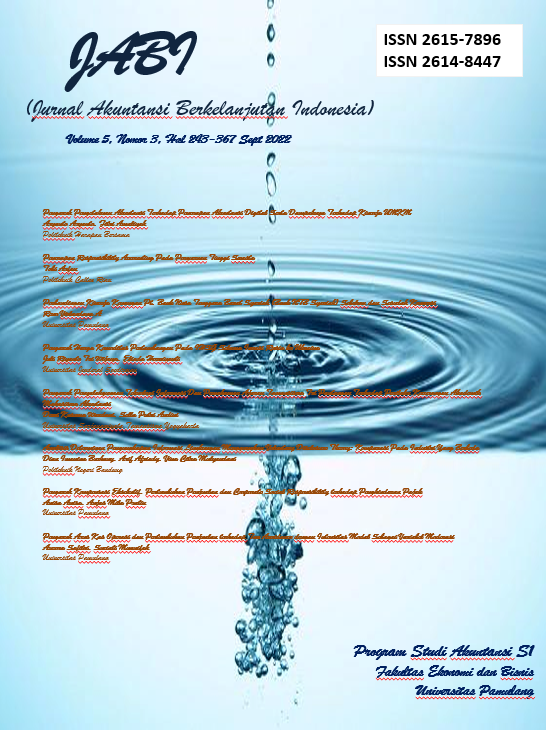Analisis Kinerja Keuangan Berdasarkan Ratio dan Dupont System
Abstract
Financial statements to be vital to the passage of a company today. The financial statements can be a source of information and be used to make decisions for each financial statement users. Companies as legal entities in Indonesia have an obligation to build the country's economy, paying taxes is one form of contribution. The purpose of this study was to determine the soundness of the financial performance of TELKOM GROUP. The scope of this study is limited by state decree No.100/MBU/2002, du pont system analysis and payment of income tax. This research was conducted on our financial statements TELKOM GROUP 2018, 2019, 2020, 2021 and 2022 with qualitative descriptive methods. The data were processed using the method of financial ratios required by Ministerial Decree No.10/MBU/2002 SOEs and du pont system analysis. From the processing of our financial ratios GROUP earn a score of 62 points, 60.5 points, 60.5 points, 61 points, and 61 points in 2018, 2019, 2020, 2021 and 2022, respectively. Based on du pont system analysis The GROUP obtained ROE of 23%, 23%, 25%, 25%, and 20% in 2018, 2019, 2020, 2021 and 2022, respectively. These results indicate that our financial soundness GROUP is in a healthy position
Keywords: Financial Statements; financial statement analysis; the level of health; financial ratios
Downloads
Published
Issue
Section
License
Copyright (c) 2023 widar naka

This work is licensed under a Creative Commons Attribution 4.0 International License.
Authors who publish with this journal agree to the following terms:
- Authors retain copyright and grant the journal right of first publication with the work simultaneously licensed under a Creative Commons Attribution License that allows others to share the work with an acknowledgement of the work's authorship and initial publication in this journal.
- Authors are able to enter into separate, additional contractual arrangements for the non-exclusive distribution of the journal's published version of the work (e.g., post it to an institutional repository or publish it in a book), with an acknowledgement of its initial publication in this journal.
- Authors are permitted and encouraged to post their work online (e.g., in institutional repositories or on their website) prior to and during the submission process, as it can lead to productive exchanges, as well as earlier and greater citation of published work (See The Effect of Open Access)

This work is licensed under a Creative Commons Attribution-ShareAlike 4.0 International License.


 PUBLICATION ETHICS
PUBLICATION ETHICS FOCUS AND SCOPE
FOCUS AND SCOPE EDITORIAL TEAM
EDITORIAL TEAM REVIEW PROCESS
REVIEW PROCESS CONTACT US
CONTACT US AUTHOR GUIDELINES
AUTHOR GUIDELINES




